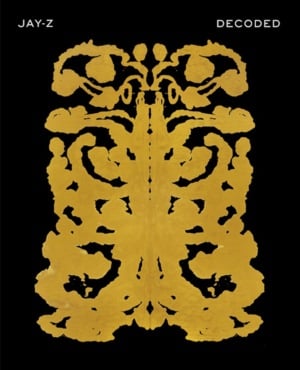
Decoded: Part 2 (Excerpts) JAY-Z
На этой странице вы найдете полный текст песни "Decoded: Part 2 (Excerpts)" от JAY-Z. Lyrxo предлагает вам самый полный и точный текст этой композиции без лишних отвлекающих факторов. Узнайте все куплеты и припев, чтобы лучше понять любимую песню и насладиться ею в полной мере. Идеально для фанатов и всех, кто ценит качественную музыку.

Part 2: I WILL NOT LOSEWhat's the basic motivation for a hustler? I hit the streets for the same reason a lot of other kids do: I wanted money and excitement and liked the idea of cutting myself loose from the rules and low ceilings of the straight world. The truth is that most kids on the corner aren't making big money--especially if you break their income down into hourly wage.* But they're getting rewarded in ways that go beyond dollars and cents. The kid on the streets is getting a shot at a dream. The dream is that he will be the only one to make this hustling thing pay off in a big way. He sees the guy who gets rich and drives the nice car and thinks, yep, that'll be me. He ignores the other stories going around, about dudes who get shot or beaten to death with bricks and chains. But they're working that corner for more than whatever small cut they get of the crack they sell--they're working because they're due for a miracle. The kid in McDonald's gets a check and that's it. There's no dream in fast food. Manager? That's a promotion not a dream. It took me a long time to realize how much courage it took to work at McDonald's, to walk through the streets past rows of hustlers wearing that orange uniform. But at the time, it seemed like an act of surrender to a world that hated us. I never even considered it a possibility.
When you've got a nation of hustlers working for a small amount of slots, you learn something that you'll never learn at McDonald's. You learn to compete hard, even when you lose, because you can't settle for second-best as a hustler. It's not worth it. The only reason to do it is for the top slot, for the number one position... Sort of like the music business. *[The gang leader’s] hourly wage was $66…the foot soldiers earned just $3.30 an hour. In other words, a crack gang works pretty much like the standard capitalist enterprise: you have to be near the top of the pyramid to make a big wage…so if crack dealing is the most dangerous job in America, and if the salary is only $3.30 an hour, why on earth would anyone take the job?”
--Steven D. Levitt and Stephen J. Dubner, Freakonomics
When you've got a nation of hustlers working for a small amount of slots, you learn something that you'll never learn at McDonald's. You learn to compete hard, even when you lose, because you can't settle for second-best as a hustler. It's not worth it. The only reason to do it is for the top slot, for the number one position... Sort of like the music business. *[The gang leader’s] hourly wage was $66…the foot soldiers earned just $3.30 an hour. In other words, a crack gang works pretty much like the standard capitalist enterprise: you have to be near the top of the pyramid to make a big wage…so if crack dealing is the most dangerous job in America, and if the salary is only $3.30 an hour, why on earth would anyone take the job?”
--Steven D. Levitt and Stephen J. Dubner, Freakonomics
Комментарии (0)
Минимальная длина комментария — 50 символов.












